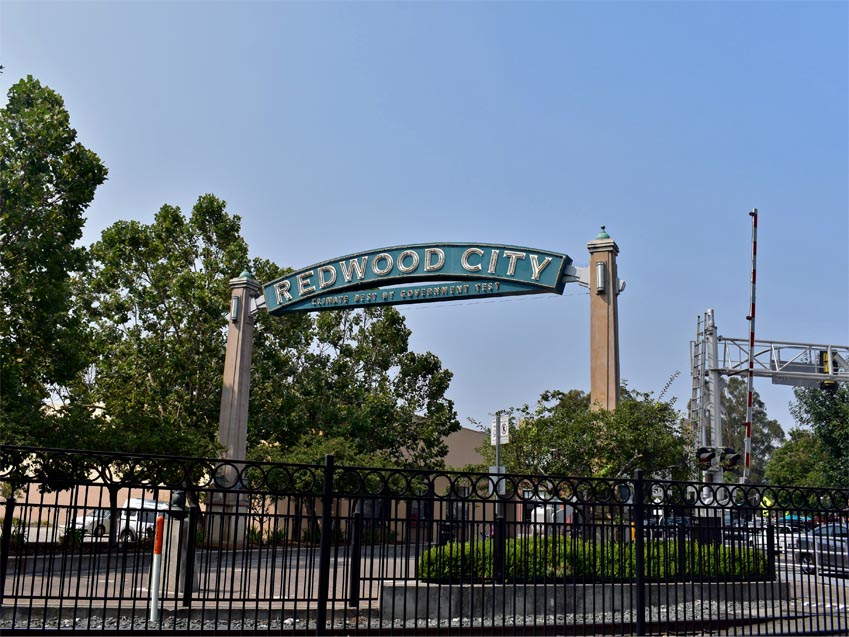Add Redwood City to the growing list of jurisdictions on the Peninsula and throughout California that are being urged to move to district elections under threat of legal action.
The City Council has received a letter asserting that its system of at-large elections systematically discriminates against minority voters and severely constrains the ability of minorities to win a seat on the council. These discriminatory actions are in violation of the California Voting Rights Act of 2001, according to the letter.
The letter, from Malibu attorney Kevin Shenkman, notes that Latinos are 39 percent of the city’s population and yet the city has only one Latina councilmember, Alicia Aguirre, who was first appointed to the council in 2003, “underscoring the inability of Latinos to elect in the first place a candidate of their choice. … The virtual absence of Latinos to run for or be elected to the city’s council (is) outwardly disturbing, it is also fundamentally hostile toward Latino participation.”
Seven other local jurisdictions have adopted district elections, or are preparing to do so: Half Moon Bay, Menlo Park, South San Francisco, the San Mateo County Board of Supervisors, the San Mateo County Community College District, Sequoia Union High School District and the Redwood City Elementary School District.
In the city of Santa Clara, a court recently ordered the city to go to district elections despite a June ballot measure in which voters rejected such a proposal.
Most of them undertook the shift from at-large elections under threat of a lawsuit from Shenkman, who has forced several California cities to make similar transitions.
The letter states that the city’s at-large system “dilutes the ability of Latinos to elect candidates of their choice or otherwise influence the outcome of the city’s council elections.
As if in confirmation of Shenkman’s contentions, the current race for three seats on the Redwood City Council has attracted seven candidates and only one, Ernie Schmidt, is a Latino.
City spokeswoman Meghan Horrigan said “staff is evaluating next steps.”
But if the response of other cities is any indication, Redwood City will soon begin the process of conducting public input on how best to divide the city into City Council districts, followed by the adoption of the new districts, quite likely in time for the 2020 election.
As has been the case in other instances, this can cause some problems for incumbents who may live in the same district and face the prospect of running against one another or moving into a new district.
In Menlo Park, where district elections are underway this year, it is clear the prospect of running in a smaller district has drawn challenges to incumbents that might not have occurred in a citywide race.
Incumbent Kirsten Keith is being challenged by Drew Combs, who almost won a citywide election in the last election. Incumbent Peter Ohtaki has two challengers, Ronald W. Shepherd and Betsy Nash and an open seat has drawn three candidates, Cecilia T. Taylor, Mike Dunn and George Yang. It’s worth noting in this context that of the eight candidates running, four are minorities – Combs, Taylor, Ohtaki and Yang.
The adoption of district elections is no guarantee that minority representatives will be elected. Since the Board of Supervisors adopted district elections in 2014 and the five board members are unmistakably white. The first race for a seat without an incumbent occurred in 2016 and of the four candidates, only one, Mike Guingona, was a minority – a Filipino in a district that is more than 50 percent Asian. The seat was won by David Canepa.
Shenkman’s hint of a lawsuit is hardly an empty threat – his firm successfully sued the city of Palmdale on the same set of issues and won after an eight-day trial.
Contact Mark Simon at mark.simon24@yahoo.com.
*The opinions expressed in this column are the author’s own and do not necessarily reflect the views of Climate Online.






